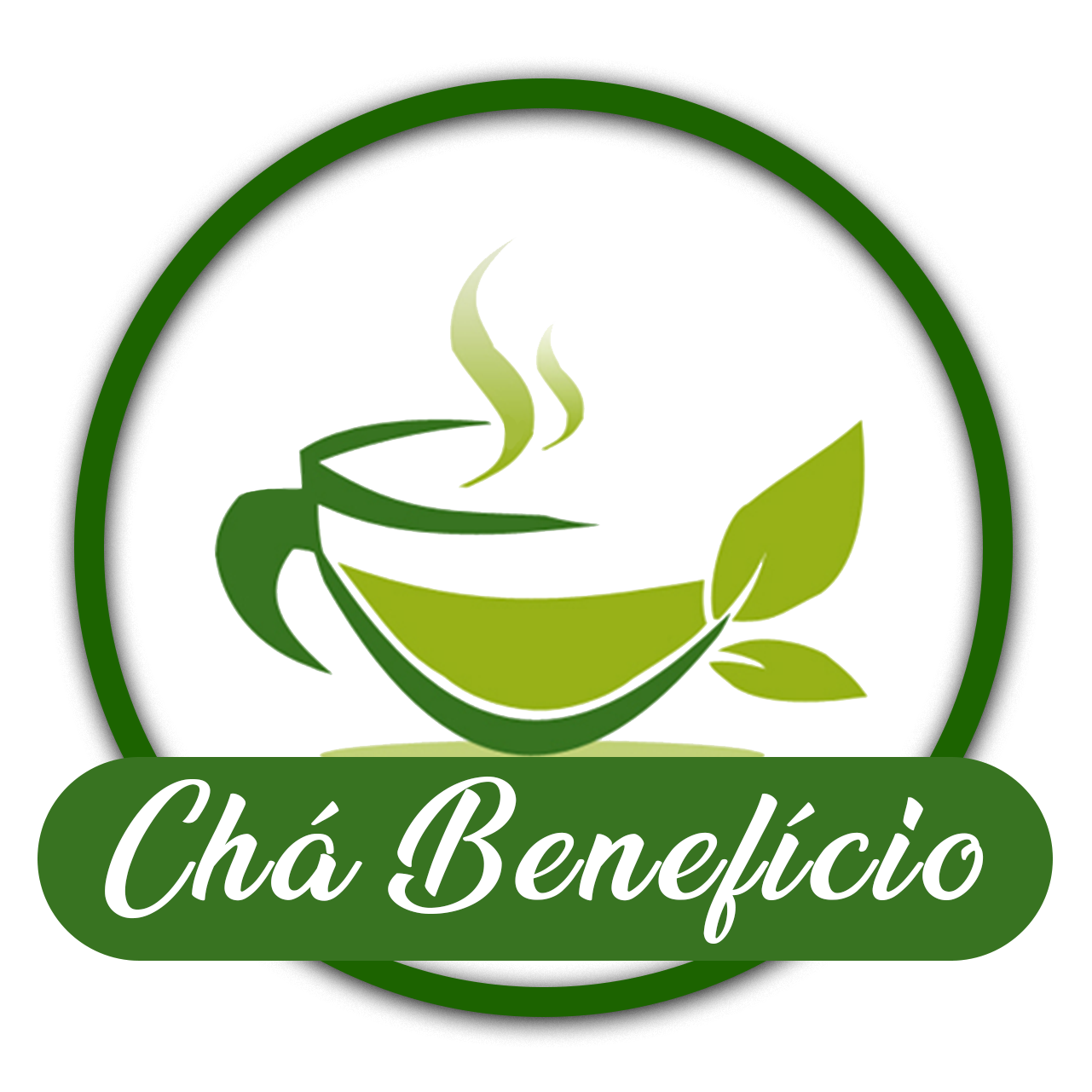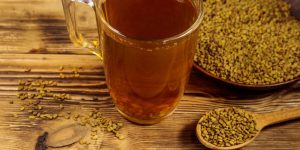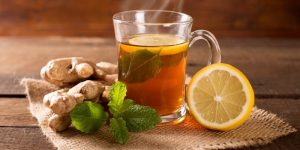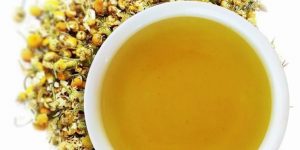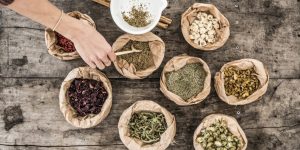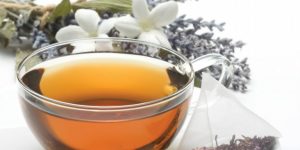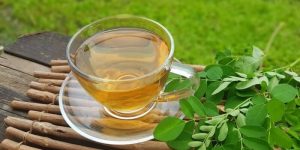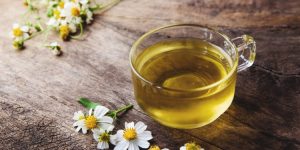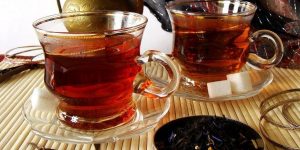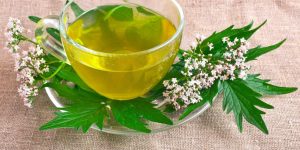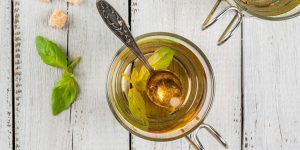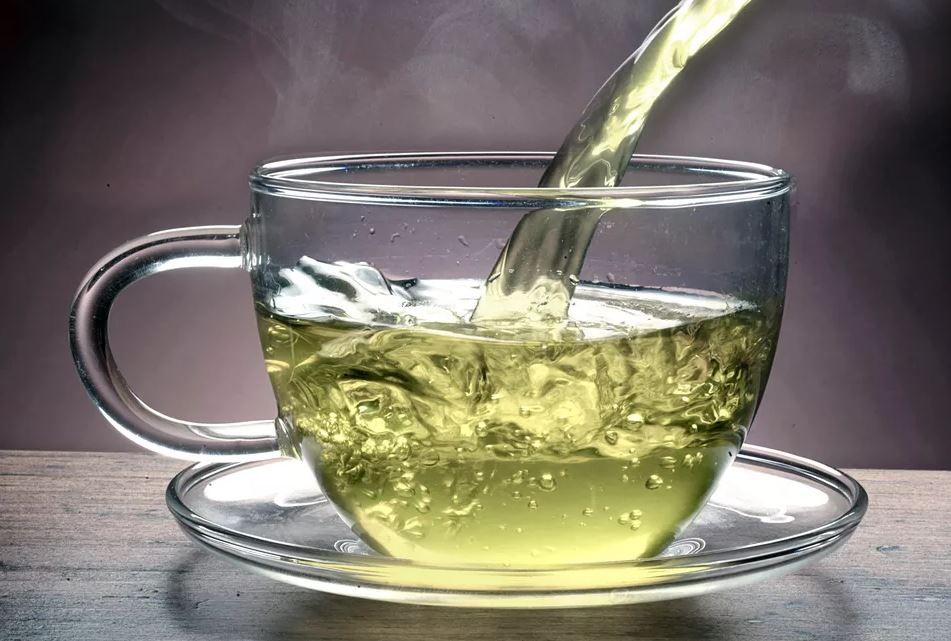
O neem tea it is a herbs tea bitter used in Ayurvedic medicine to treat a variety of ailments. Although it is commonly enjoyed around the world, it comes with some precautions, but fearlessly enjoy its benefits.
Quick Facts
Origin: India
Alternative names: Indian lilac
Temperature: 200°F
Caffeine: none

What is neem tea?
O neem tea, also known as Indian lilac tea, is an infusion of herbs made with whole or dried ground leaves of the neem tree. The tree is native to Southeast Asia and has been used in India for a variety of purposes for centuries.
The plant provides natural pest control with minimal maintenance or water. Neem bark is used to clean teeth, neem oil is used for cosmetics, the wood is used to make furniture, and almost every part of the plant is used.
In Ayurveda, neem is said to be bitter and refreshing. For this reason, neem is often used to treat diseases associated with various pathological diseases caused by parasites.
O neem tea On its own it tastes incredibly bitter. Furthermore, it is usually mixed with other herbs and ingredients to offset bitterness and for additional health benefits.
Some neem teas are mixed with black tea or green, while other mixtures are based on herbs and without caffeine. The exact flavor will depend on the mixture, but expect a bitter note from the neem leaves.
Benefits of Neem Tea:
O neem tea It is widely used for its health properties in Aryuvedic medicine for everything from detoxification to allergies to birth control. The bark and oil are also used for medicinal purposes.
Including the prevention of gum disease and the treatment of lice. Although neem comes with some warnings and is not recommended for pregnant or breastfeeding women, it has been shown to have some benefits.
Rich in antioxidants
O neem tea It is rich in antioxidants, helping to neutralize free radicals that can lead to certain conditions. Additionally, antioxidants have been shown to be useful in preventing cancer.((https://bmccomplementmedtherapies.biomedcentral.com/articles/10.1186/s12906-017-1900-3))
It is anti-inflammatory
Neem-based products have natural anti-inflammatory properties, calming the body and helping to prevent and treat some diseases.
Fights various diseases
In several studies, neem has been shown to have antibacterial, antifungal and antimalarial properties, helping to prevent harmful diseases. Also, please note that neem is not a substitute for traditional medical treatments.
Uses of neem tea
O neem tea it can be made with fresh leaves, but is more commonly made with whole or ground dried leaves. Furthermore, tea is consumed at any time of the day and is often drunk for its medicinal properties.
How to drink neem tea
O neem tea it is normally served hot. About 1 teaspoon should be used per 1 cup of water at 200 degrees (boiling, but not boiling) and steeped for 5 to 10 minutes. It can also be chilled and served cold.
Leaves of neem tea are often mixed with black tea or green or herbs and spices like cinnamon. Mixing the tea with sweet and spicy flavors helps balance the bitterness of the leaf.
You can make your own mixture at home by adding ingredients such as cardamom, fennel, or using a ratio of 1 part neem tea for 1 part of black tea, green or rooibos.
Counteract the bitterness by adding honey or sugar and lemon juice to the neem tea just done. Additionally, neem leaves are also sold as a fine powder.
A small amount of powder should be stirred in warm or cold water and mixed well before consuming it. See packaging for recommended dosage.
Caffeine content in neem tea
O neem tea is made from the leaves of the neem tree, which makes it a herbs tea and naturally caffeine-free. Additionally, some mixtures ofneem tea include black tea or green, which add caffeine to the drink.((https://www.dovepress.com/antibacterial-activity-of-neem-nanoemulsion-and-its-toxicity-assessmen-peer-reviewed-article-IJN))
Buying and storing
O neem tea It can be found in health food stores, organic specialty stores, Indian and Southeast Asian markets, and online.
Tea should be stored in an airtight container in a dry, dark and cool place. Although neem leaves don't spoil, they do. We recommend using your neem tea within six months of purchase.
Side effects
The use of neem tea It is not recommended for pregnant women, nursing mothers, couples trying to conceive, children, people taking lithium, people with autoimmune diseases or diabetes, organ transplants, or for anyone scheduled for surgery within two weeks.
The effects of consuming high doses of neem over a long period of time are not well studied and are therefore not recommended. Additionally, if you are taking medications that are prone to interactions, consult your doctor before consuming the neem tea.
